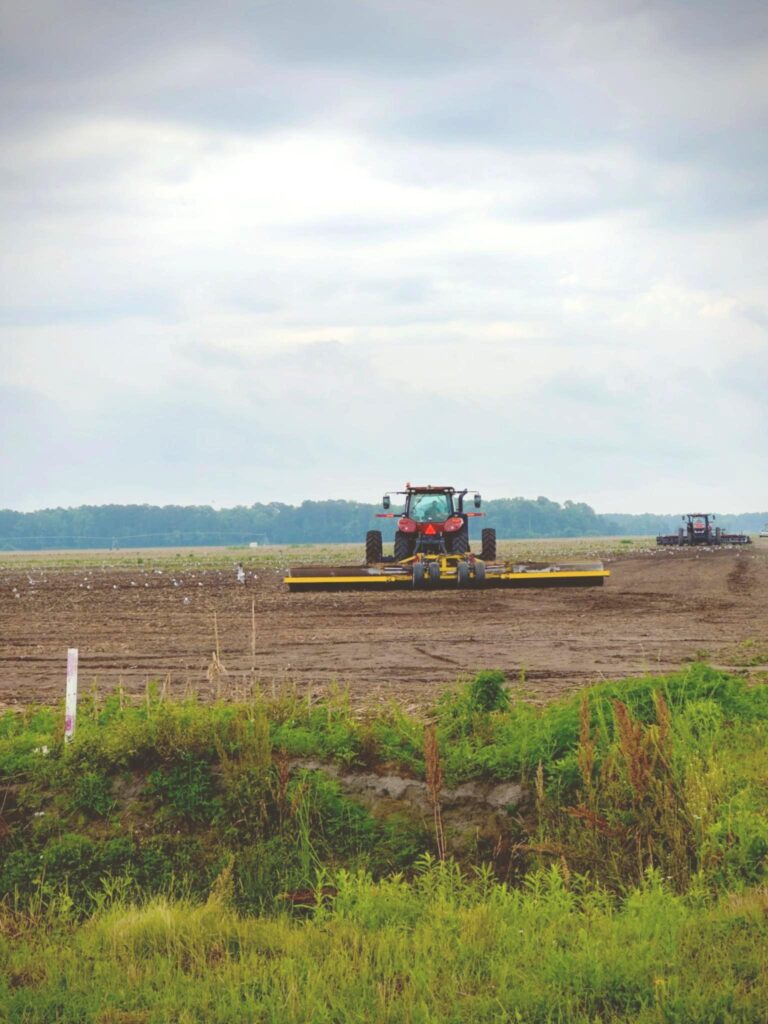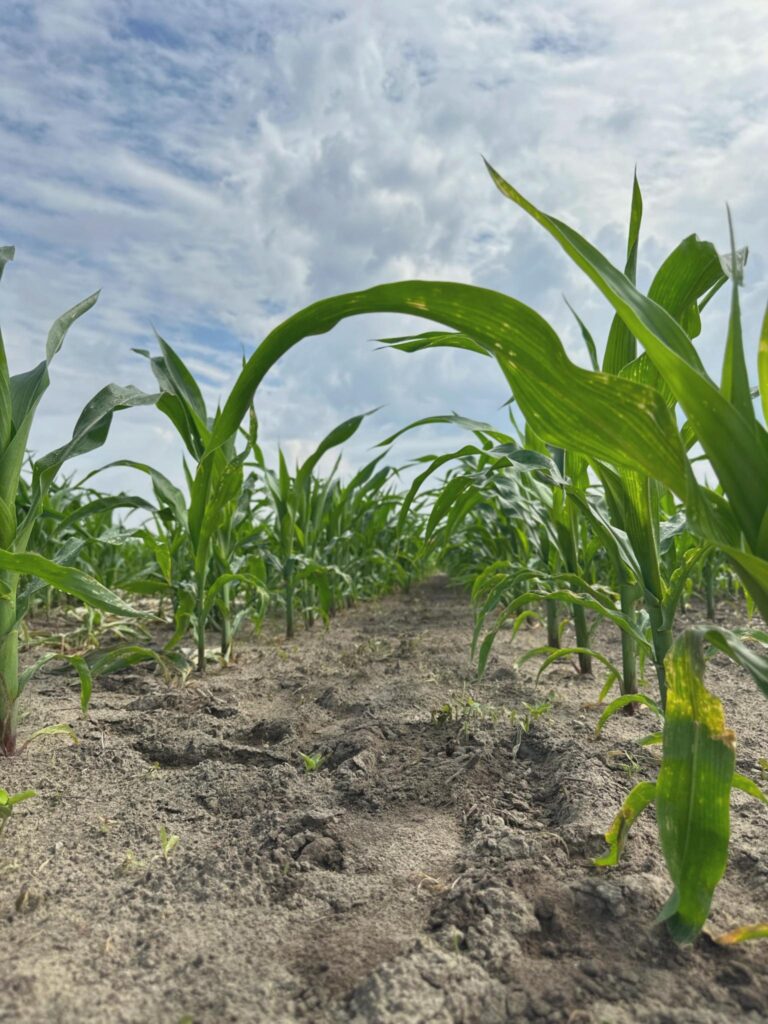

Pamlico County, NC (July 29, 2025)— Working Lands Trust (WLT) is proud to announce the successful completion of the second and final phase of the McCotter Promised Land Opportunity Zone (PLOZ) Farm Easement, permanently conserving an additional 1,568 acres of prime farmland and working forest in Pamlico County, making it the second largest agricultural easement secured in conjunction with state and federal partners. With the previous phase — closed in 2023 — protecting 1,200 acres, the total acreage now safeguarded under the McCotter PLOZ Farm Easement stands at a historic 2,768.43 acres, making it the largest conglomerate of agricultural conservation easements funded with state and federal funds under one landowner in the history of North Carolina.
This conservation milestone represents years of collaborative effort among landowners, public and private partners, and conservation leaders. It was made possible through generous support from the North Carolina Department of Agriculture’s Agricultural Development and Farmland Preservation Trust Fund (ADFPTF) and the Department of Defense’s Readiness and Environmental Protection Integration (REPI) program.
Marine Corps Air Station Cherry Point Commanding Officer Col. Brendan Burks commented, “This easement acquisition is a great achievement for America’s Air Station and a tremendous win for the warfighter. It protects critical farmland and preserves operational capabilities within military airspace for low altitude pilot training.”
Pamlico County has long played a pivotal role in North Carolina’s agricultural history. Known for its fertile coastal plain soils, the region has supported generations of farmers cultivating corn, soybeans, cotton, and timber. Historically, the area thrived on diversified farming, with deep roots in both commodity agriculture and small-scale family farms. Today, Pamlico’s working lands continue to feed the state and nation, while also contributing to climate resilience and rural livelihoods.
“Promised Land OZ is pleased to partner on the strategic preservation of McCotter farm to feed and protect future generations of Americans,” remarked John Heneghan, Manager of Promised Land Opportunity Zone Funds.
Mikey Fulk, Executive Director of Working Lands Trust, remarked: “This project is a model for what farmland preservation can achieve. It demonstrates the strength of partnerships, the foresight of landowners, and the growing recognition that agriculture, conservation, and military readiness are interconnected. The McCotter PLOZ Easements help ensure that Pamlico County remains a place where farming is viable, valued, and protected.”
“This is the second largest conservation easement in the history of the Farmland Preservation program, and it serves as a perfect reminder of the long-term, strategic benefits that come from investing in farmland conservation to support our state’s top two industries — agriculture and the military,” said Agriculture Commissioner Steve Troxler. “I am proud of our continued partnership with the United States Marine Corps, the U.S. Navy, and the Working Lands Trust.”
Without funding from federal and state governments, projects that support food security and national security would not be possible. Demand for farmland preservation is at an all-time high, but state and federal funding are falling far short. We encourage state and federal lawmakers to fully fund farmland preservation programs so this important work can continue.
The McCotter PLOZ Farm Easement is more than a transaction — it’s a symbol of what can be accomplished when we act with urgency and collaboration to protect the lands that sustain us. Working Lands Trust is proud to be a part of this legacy and invites all North Carolinians to help shape the future of rural resilience, agricultural preservation, and natural heritage.
Media Inquiries or Partnership Opportunities:
Contact Mikey Fulk at (336) 460-2562 or mi***@***************st.org
About Working Lands Trust:
Working Lands Trust is a nonprofit organization dedicated to conserving North Carolina’s working farms, forests, military readiness, and rural heritage. Through strategic partnerships and innovative conservation tools, WLT helps landowners protect their property, sustain their communities, and strengthen the future of agriculture in the state.
